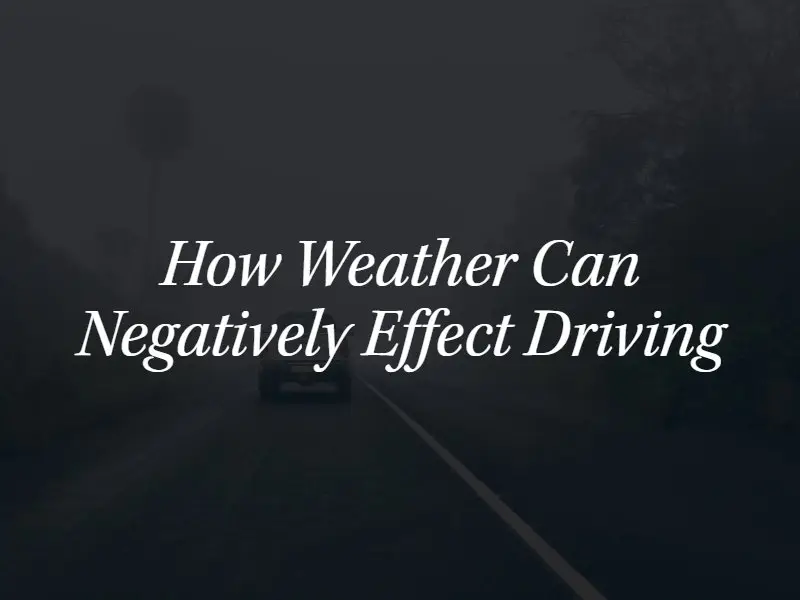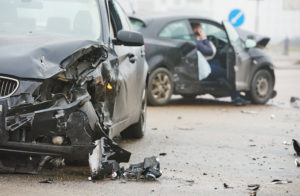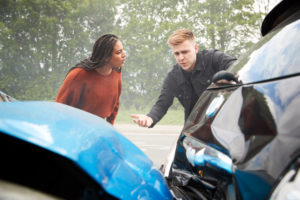How Weather Can Negatively Effect Driving
The weather plays a significant role in the safety of a roadway. Bad weather such as rain, fog, wind, sleet or snow could make conditions too dangerous for driving. Weather can create visual impairments and interfere with the performance of a vehicle. Over one million car accidents each year are weather-related, according to the US Department of Transportation. Slippery roads, less tire traction, increased crash risks and heavier traffic flow can all lead to weather-related car accidents. Although bad weather might have contributed, someone could be liable for these car accidents depending on the circumstances.

A Reckless or Negligent Driver
Many people assume since the weather was an act of God, no driver will be at fault for a related collision. This is a misconception. Only in very rare instances will the act of God defense work in a car accident suit, even if the crash occurred in bad weather. In a storm, it is often not the bad weather itself that causes a car accident, but bad drivers. A bad driver could make mistakes during a storm that ultimately cause a collision.
It is a driver’s legal responsibility to take the weather into account and alter his or her driving accordingly to reasonably avoid an accident. Only if the weather was sudden or unexpected (such as a flash flood or tornado) would the act of God defense be plausible. Drivers have a responsibility to account for bad weather. They must check the weather before going out. If the forecast predicts a storm, the driver should use his or her best judgment about whether to go out or stay home.
On the road, a driver should adjust his or her speed and other driving habits to accommodate bad weather. On wet, icy or slippery roads, for example, a driver should slow down to a reasonable speed (this could be lower than the posted speed limit) and increase his or her following distance to help prevent rear-end collisions. Drivers should also use their headlights, windshield wipers and other features to help prevent accidents. If a driver negligently fails to take the proper steps and causes an accident in bad weather, he or she could be liable for damages.
For a Free Legal Consultation
Call The Personal Injury Lawyer Hotline.
804-250-5050
The Owner of a Poorly Maintained Vehicle
It is not enough for a driver to operate a motor vehicle safely while already on the road. The driver – or the owner of the vehicle – must also ensure the reasonable safety of the vehicle itself. Failing to properly maintain a motor vehicle could increase the risk of a car accident in bad weather. Bald tires, for example, will be more likely to lose traction and hydroplane on a wet road. It is the legal responsibility of the owner to ensure a safely operating vehicle.
Before going out, a car owner should check his or her vehicle to make sure it is fit for operating in bad weather. This can include inspecting tire tread, tire pressure, windshield wipers and lights. It may be necessary for the driver to swap out regular tires for snow tires in winter, take the vehicle to a professional mechanic, replace broken wipers, properly inflate tires, scrape ice from the windshield, clean headlights, replace broken bulbs and take other steps to ensure the roadworthiness of the vehicle. Negligent vehicle maintenance could point to owner liability for a crash in bad weather if a reasonable and prudent owner would have been able to prevent the accident.
After a car accident in poor weather, liable parties could include the driver, vehicle owner, manufacturer of a defective car part, or the government for a poorly designed or maintained roadway. A Richmond car accident lawyer could help a crash victim identify the correct defendant and prove weather conditions after a collision. The lawyer can then take the proper steps to obtain full and fair compensation from the at-fault party.
The Pendleton Law Team Is Here For You 804-250-5050



